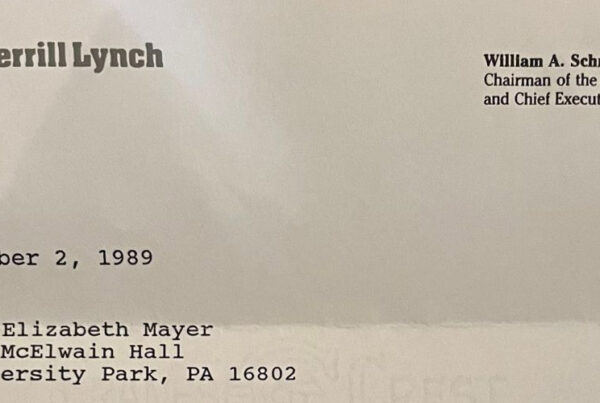
Let me start by saying that I hate strategic planning, and so do many of the people who do it every one to three years. The number one complaint about strategic planning: the plan sits on a shelf and doesn’t change or effectively guide people’s behavior.
I think one of the main reasons for this continuous failure is that most strategic plans, with their cascading set of alpha-numeric goals, objectives, tasks, etc. don’t end up telling a compelling story. That’s why nobody remembers it as they go about their jobs, and that’s why strategic planning rarely helps people to do things differently.
Of course there is nothing that says your strategy can’t also tell a story. Decades ago some very smart people at Royal Dutch Shell created a process for strategy called “Scenario Planning” that does just that.
A story about how that process was started is, of course, the perfect illustration. In the late 1960s and early 1970s, the world did not yet know that it was headed for a major oil crisis. There was, however, a team at Royal Dutch Shell that was charged with looking at trends and thinking about different possible futures and the impact these futures would have on the oil company’s operations. When they looked at the oil reserves in the Middle East, the fact that many oil contracts were due to be renegotiated in the mid 1970s, and some other factors, they realized it was definitely plausible for the Arab states to demand a much higher price for oil.
They shared their impressions with the managers. The managers were impressed. The managers could see the obvious implications of this possible scenario for the oil company. They congratulated the strategic planning team on their fine work. And then they did nothing. Rather, they continued doing what they were doing. No behavior changed as a result of the team’s obviously important conclusions from the strategic planning.
So strategic planning team went back—not to gather more data, to instead, craft a more compelling story. They wrote out a set of much more detailed scenarios. These new stories didn’t just spell out what a price increase would do to operations, they wrote out possible playing out of social, economic, and political trends.
In one scenario, they even described one Middle Eastern country actually seizing control of Royal Dutch Shell’s oil fields. The new, more powerful stories prompted the managers to change their behavior. They didn’t make any radical changes immediately—these were, after all, just strategic planning stories about possible futures, not a sure-fire prediction of the future. In fact, the scenario with the oil field seizures never did come true. When the oil crisis did happen, Shell had already prepared itself some, and it moved faster than its competitors.
Royal Dutch Shell went from one of the weaker of the “seven sister” oil companies to number two in size and number one in profit.
Royal Dutch Shell became number two in size and number one in profit.
I think in business we overplay facts and analysis. They are certainly important (those scenarios were based on plenty of facts and analysis). If you want people to behave differently, you’d better work on your story.
Thanks, Ira, for letting me play in your space!
Jamie Notter is the person whom I credit the start of my public speaking career. He was the one suggesting I become a professional speaker… At the time, I never considered it. I will always be grateful.
Jamie is a successful author four times over. From his website, Jamie is an “accomplished speaker, author, and consultant—with deep expertise in workplace culture, generations, and growth.”
Interested in (dramatically) improving your storytelling, public speaking, or communication skills?



